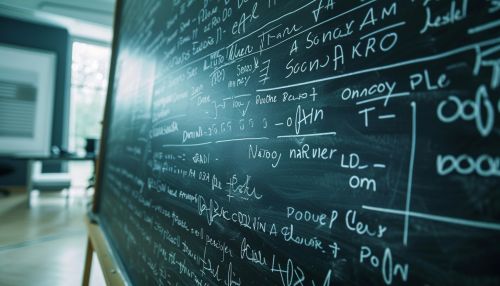Potential theory
Introduction
Potential theory is a branch of mathematical analysis that deals with the study of harmonic functions. It is closely related to the mathematical fields of partial differential equations, complex analysis, and probability theory. The term "potential theory" arises from the fact that it has been historically used to describe the potential energy field in physical systems.
Historical Background
The roots of potential theory can be traced back to the 18th century, when mathematicians began studying the gravitational and electric potentials associated with physical forces. The French mathematician Pierre-Simon Laplace made significant contributions to the field with his development of the Laplace's equation, a second-order partial differential equation that is widely used in potential theory.


Basic Concepts
Potential theory is primarily concerned with the properties and behavior of harmonic functions. A function is said to be harmonic if it satisfies the Laplace's equation. In the context of potential theory, these functions are often interpreted as the potential energy fields generated by certain physical systems.
Another important concept in potential theory is that of a Green's function, which is used to solve inhomogeneous differential equations. In potential theory, the Green's function often represents the fundamental solution to a given problem, providing insight into the behavior of the potential field.
Mathematical Formulation
The mathematical formulation of potential theory involves the use of several advanced mathematical techniques, including Fourier analysis, functional analysis, and measure theory. These techniques are used to study the properties of harmonic functions and to solve various problems related to potential fields.
Applications
Potential theory has a wide range of applications in both pure and applied mathematics. In physics, it is used to model the behavior of gravitational and electric fields. In engineering, it is used in the design of electrical circuits and in the analysis of heat conduction. In computer science, potential theory is used in the field of image processing, where it aids in the reconstruction of images from partial or noisy data.
